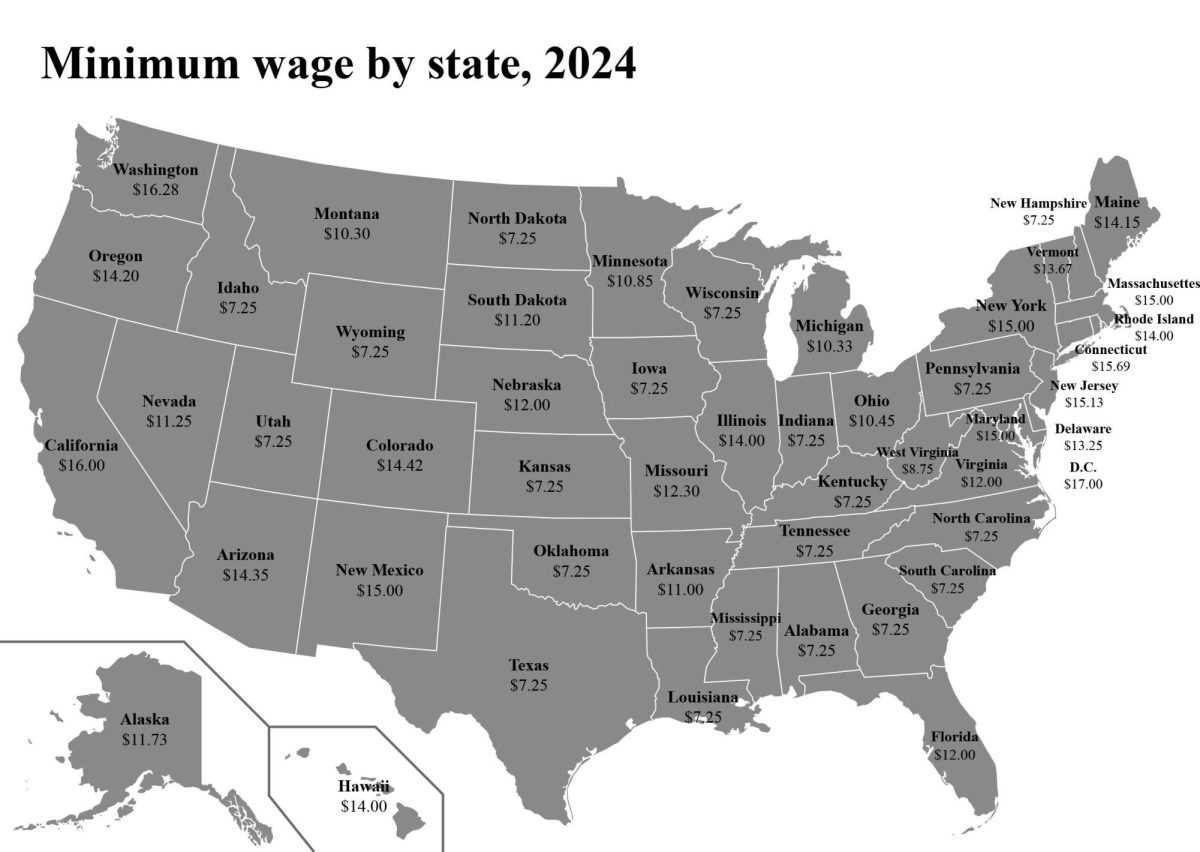Beginning in the new year, the Illinois minimum wage was raised from $13 an hour to $14 an hour under Cook County’s Minimum Wage Ordinance (MWO).
For tipped employees, the minimum wage was raised to $8.40 an hour, and for workers under the age of 18 and working less than 650 hours per year, the wage was increased to $12 an hour.
Illinois currently offers the highest minimum wage in the Midwest, and starting this year, Illinois is number 11 in the highest wage for non-tipped employees nationwide.
Since 2019, there have been six minimum wage increases in Illinois. Under the MWO, the minimum wage has increased from $9.25 in 2020 to $14 in 2024. Governor JB Pritzker signed legislation in 2019 putting the state on a path to a $15 an hour minimum wage by 2025.
According to the Illinois Department of Labor, this legislation also projects that the minimum wage for youth under 18 will reach $13 an hour by 2025.
“With this new minimum wage increase, we are once again making Illinois a more affordable and equitable place to live for all of our residents,” Pritzker stated on his website.
Illinois Department of Labor Director Jane Flanagan stated in a press release from Dec. 19, 2023, that “these wage increases have helped Illinois workers pay for the increasing costs of groceries, childcare and other everyday expenses.” She continued that “nationally, minimum wage laws have not kept pace with the cost of living.”
An increased minimum wage has the benefits of higher job growth and employment rates. It is intended to ensure working-class individuals have a decent standard of living, especially in a large metropolitan area.
According to the Illinois Economic Policy Institute, an additional $380 million in annual state tax revenue will be generated from an increased minimum wage.
“For each employee hired at the minimum wage, the company saves about 50% of the cost and thus can either hire a lot more workers or save a lot on costs of production, giving them an advantage,” stated H-F economics teacher Nick Anello.
However, empirical evidence from the Institute for the Study of Labor (IZA) shows that this change has no benefit for low-income families, and instead for those who already hold a job. Any benefits of minimum wage are quickly offset by fewer jobs.
“One issue at hand with minimum wage is income equality,” Anello stated. “There are many social programs that try to improve economic equality in the U.S. However, we are very middle of the road in terms of economic inequality.”
Unfortunately, on the macro scale, the U.S. falls short in wealth equality. According to the Federal Reserve Bank of St. Louis, data from the second quarter of 2023 show that the top 10% of households hold 69% of total household wealth in the U.S. The bottom 50% of households held only 2.5% of total household wealth.
“The COVID crisis has revealed economic inequity and injustice that has existed within the state for a long time,” Pritzker stated in a press release from Dec. 7, 2020. “This is inexcusable, and we must address this by ending systems that perpetuate this intergenerational cycle.”






